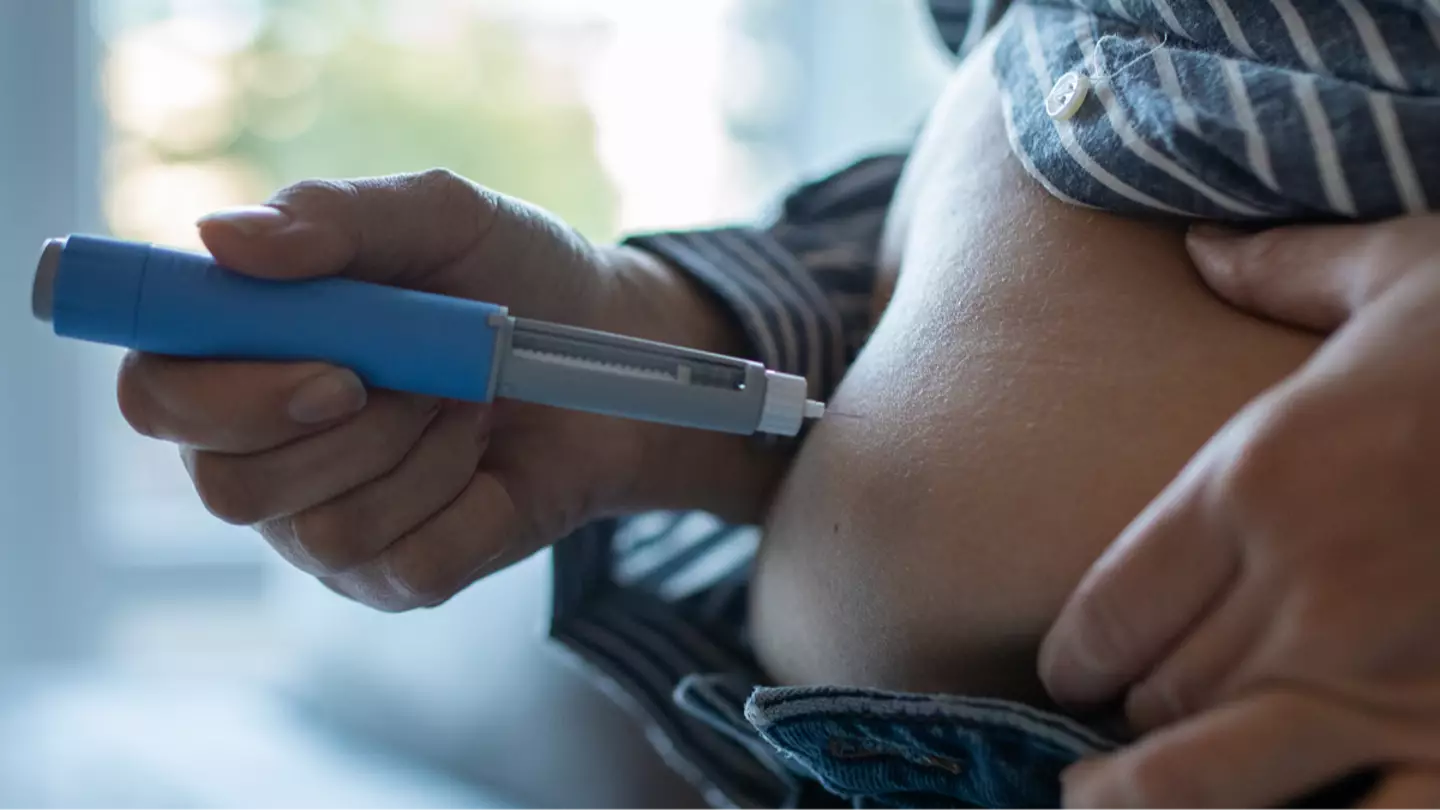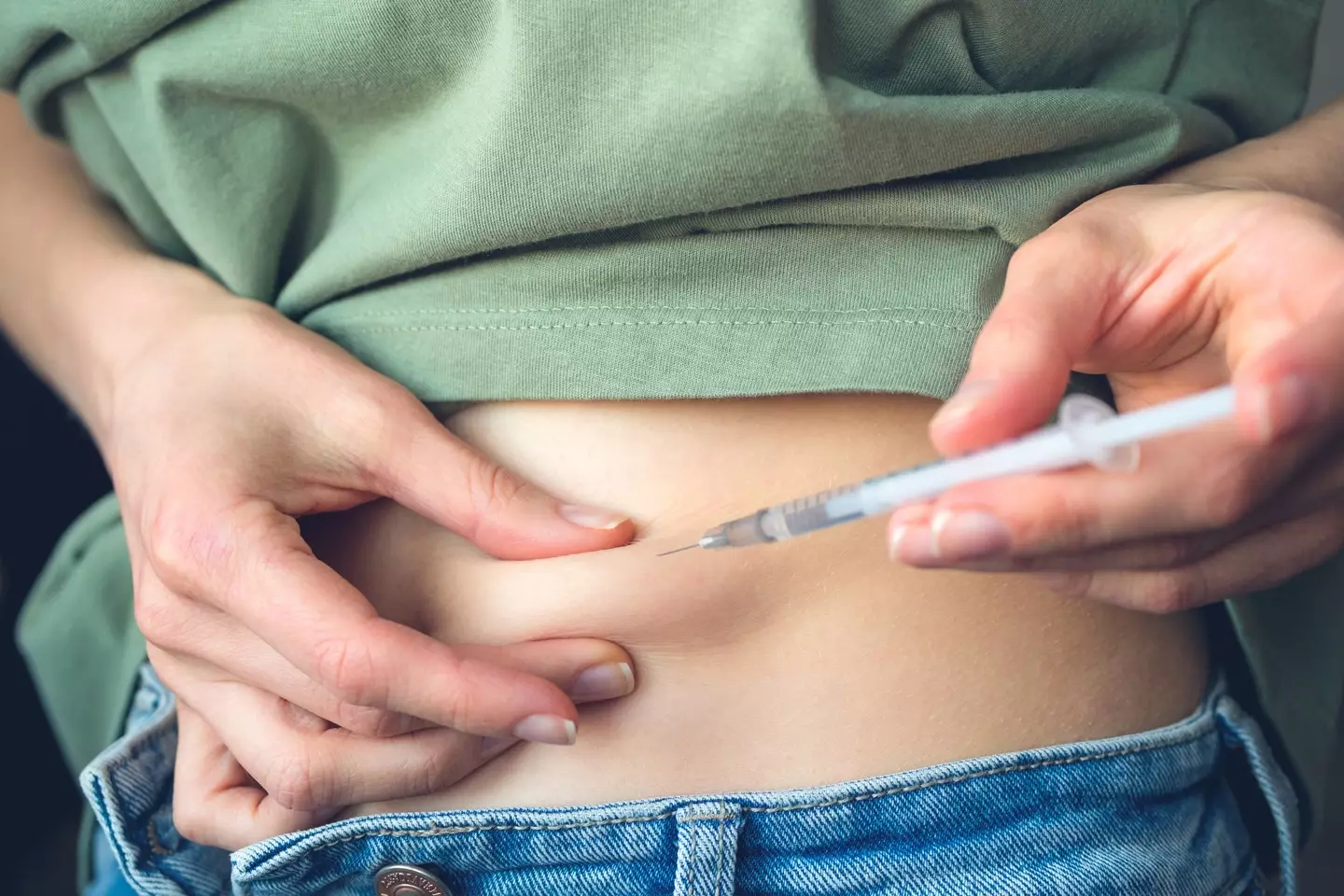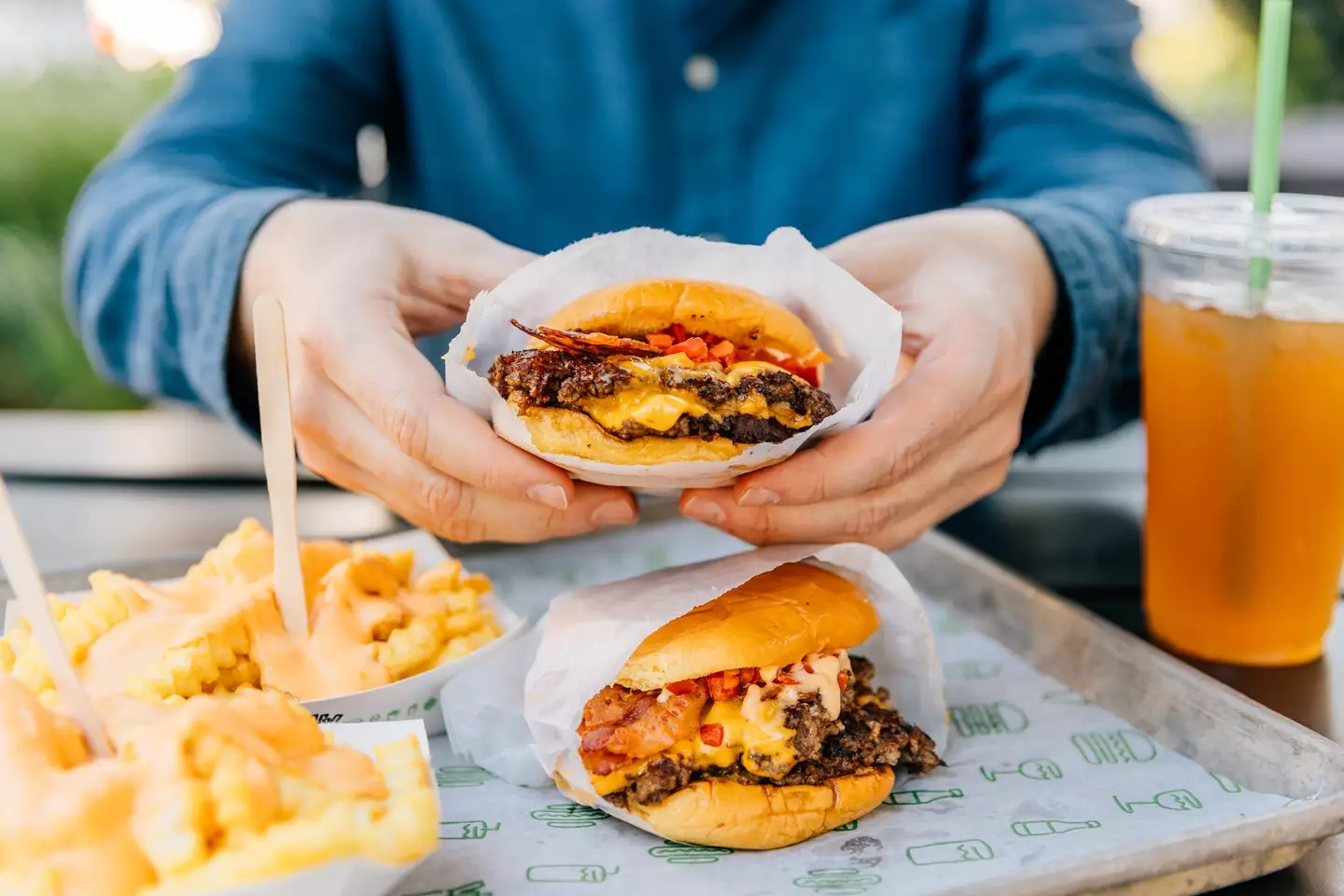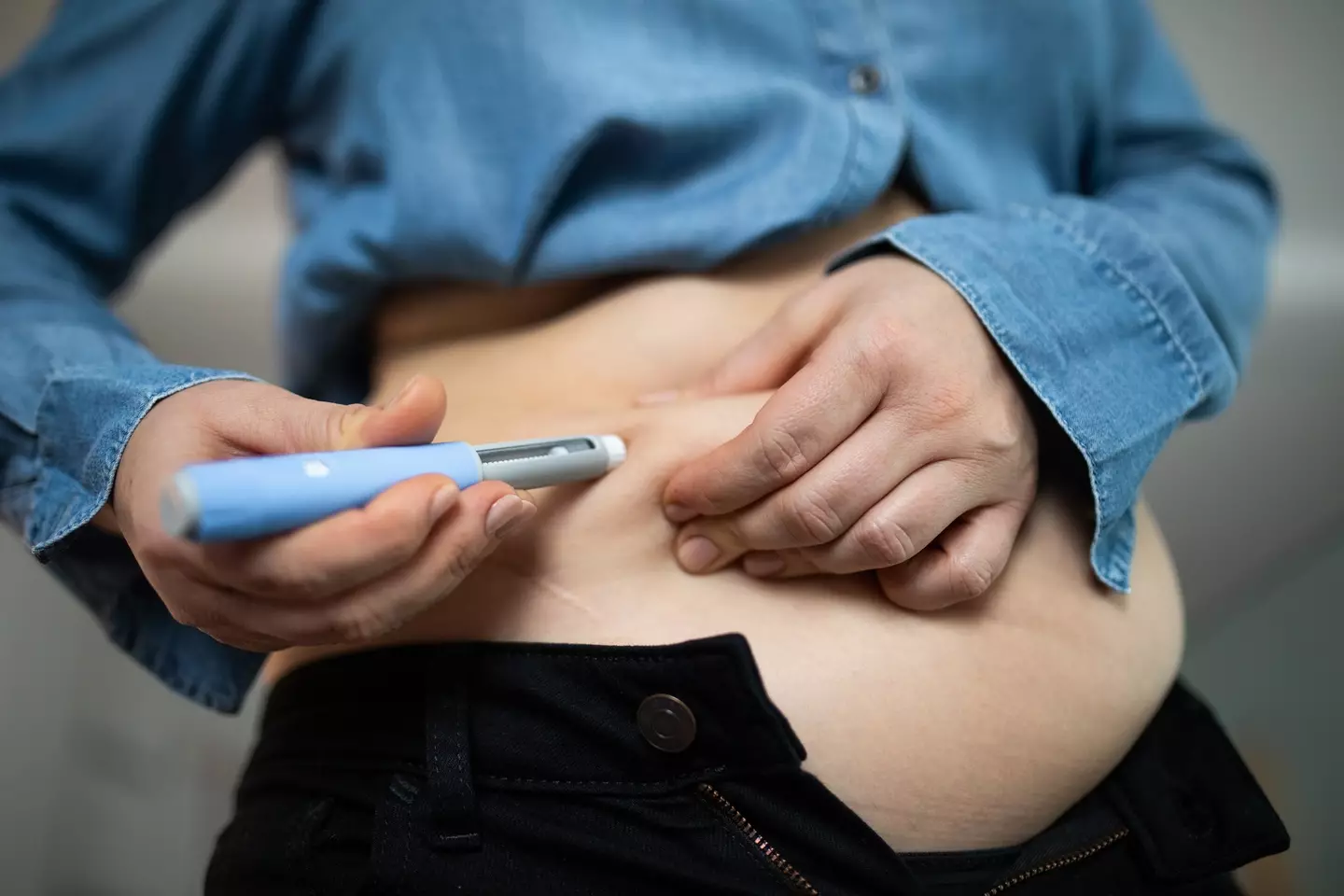
A new study has revealed the group of people who are least likely to lose fat while taking weight loss injections.
In the last few years, research shows that around 12 percent of Americans have been using weight loss jabs to shed the pounds.
GLP-1 agonists are a type of treatment that mimic the hormone, GLP-1.
They manage blood sugar and stabilise hunger, which is why they are often used for treating type 2 diabetes.
Advert
In recent years, GLP-1 has been available as an injection pen, that can be injected into the body, usually on a weekly basis. But while some people lose weight easily on the injections, for others, it can be harder.
A new study has explained why some people find it more difficult than others, revealing how a person's eating behaviors could predict how effective GLP-1 medication can be.
“Pre-treatment assessment of eating behavior patterns may help predict who will benefit most,” said senior author, Professor Daisuke Yabe of Kyoto University.

In the study, a team of researchers tracked 92 people living in Japan with type 2 diabetes, who had been prescribed a GLP-1 medicine.
They looked at weight, body composition, diet, blood sugar levels and cholesterol and also studied their eating habits.
They looked at three eating habits in particular - external, which refers to eating because of how a food looks (but not from hunger); emotional, which refers to eating when stressed or sad and restrained eating, which typically describes restricting food to eat fewer calories.

After looking at the data, the team found that after three months, most of the participants were eating less in response to emotional and external triggers, however, by the end of 12 months, the emotional eating had returned to its previous levels.
They found that people who emotionally eat, or restrict foods, lost less weight than those who are 'external eaters'.
“One possible explanation is that emotional eating is more strongly influenced by psychological factors, which may not be directly addressed by GLP-1 receptor agonist therapy,” second author, Dr Takehiro Kato of Gifu University, added.

Meanwhile, Yabe said: “GLP-1 receptor agonists are effective for individuals who experience weight gain or elevated blood glucose levels due to overeating triggered by external stimuli. However, their effectiveness is less expected in cases where emotional eating is the primary cause.
“... While our study suggests a potential association between external eating behavior and treatment response to GLP-1 receptor agonists, these findings remain preliminary.
“Further evidence is necessary before they can be implemented in clinical practice. Should future large-scale or randomized controlled trials validate this relationship, incorporating simple behavioral assessments could become a valuable component in optimizing treatment strategies.”
